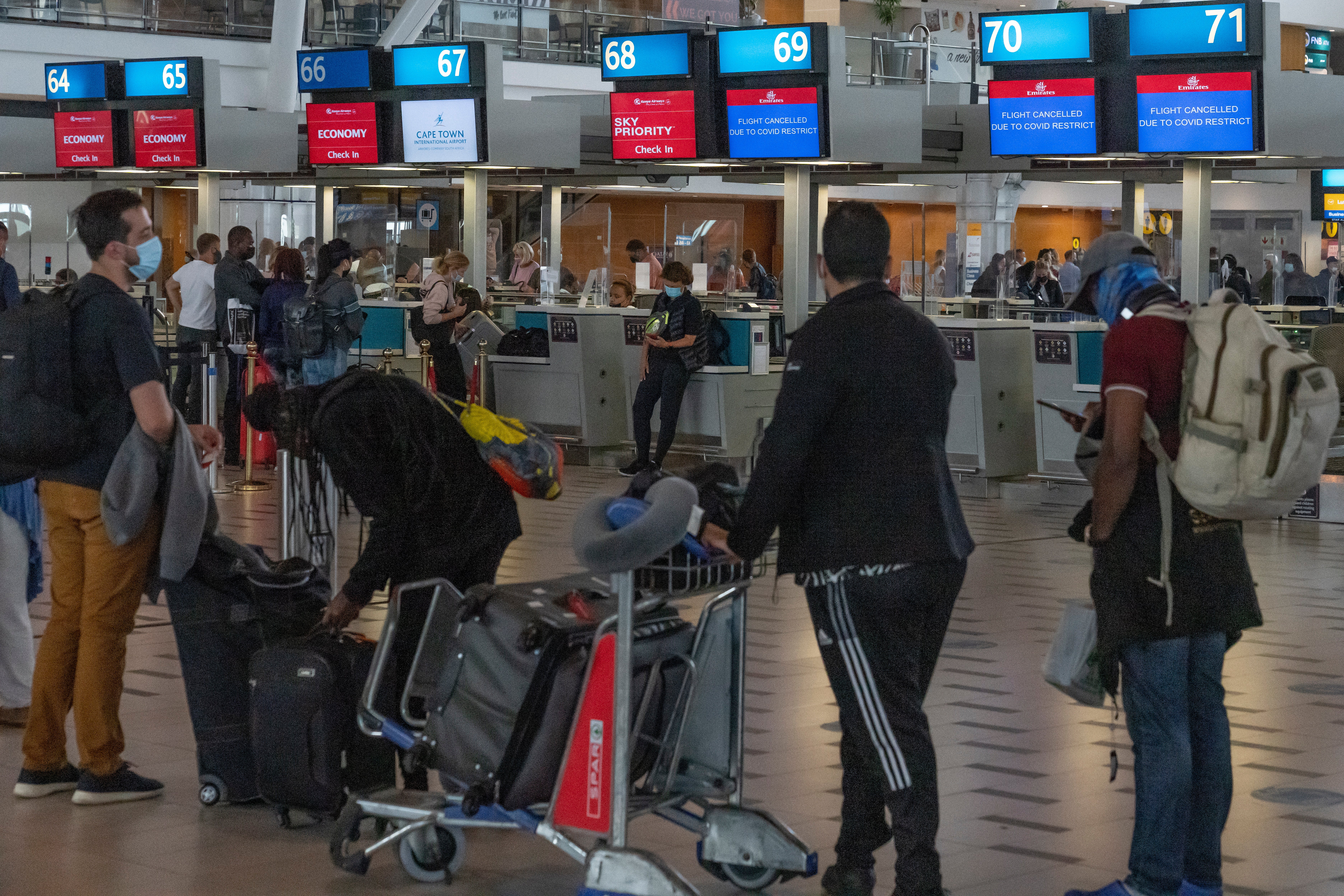Blanket travel bans ‘attack global solidarity’, says World Health Organization
Bans ‘will not prevent the international spread’ of omicron, says regional director for Africa

Your support helps us to tell the story
From reproductive rights to climate change to Big Tech, The Independent is on the ground when the story is developing. Whether it's investigating the financials of Elon Musk's pro-Trump PAC or producing our latest documentary, 'The A Word', which shines a light on the American women fighting for reproductive rights, we know how important it is to parse out the facts from the messaging.
At such a critical moment in US history, we need reporters on the ground. Your donation allows us to keep sending journalists to speak to both sides of the story.
The Independent is trusted by Americans across the entire political spectrum. And unlike many other quality news outlets, we choose not to lock Americans out of our reporting and analysis with paywalls. We believe quality journalism should be available to everyone, paid for by those who can afford it.
Your support makes all the difference.Blanket travel bans “attack global solidarity” and “will not prevent the international spread” of the omicron coronavirus variant, the World Health Organization (WHO) has said.
Speaking of the widespread travel restrictions that have been ramped up in response to the threat from the new variant, which was first identified in South Africa, the WHO's regional director for Africa, Matshidiso Moeti, said: “Covid-19 constantly exploits our divisions. We will only get the better of the virus if we work together for solutions.”
He added that blanket bans “place a heavy burden on lives and livelihoods” while not stemming the spread of the virus.
When South Africa informed the world about the latest variant of concern to be detected, it was swiftly penalised, with countries around the world, including the UK, imposing strict bans on entry.
The British government put a total of 10 African nations back on its red list, meaning only British citizens and residents can enter the UK from them and must pay thousands of pounds for an 11-night quarantine in a government-mandated hotel.
WHO officials have praised South Africa and Botswana’s actions around the omicron variant, saying that the countries should be applauded, not sanctioned.
“The speed and transparency of the South African and Botswana governments in informing the world of the new variant is to be commended,” said Moeti.
“WHO stands with African countries which had the courage to boldly share life-saving public health information, helping protect the world against the spread of Covid-19.”
Since omicron was first identified, it has been detected in at least 24 countries, including the UK, US, Australia and France.
Some countries, such as Japan, Israel and Morocco, have banned all international travellers in response, while others have imposed tighter restrictions.
Brits travelling to Switzerland must quarantine for 10 days, while all non-EU travellers must present a negative Covid test to enter France from 4 December.
Join our commenting forum
Join thought-provoking conversations, follow other Independent readers and see their replies
Comments